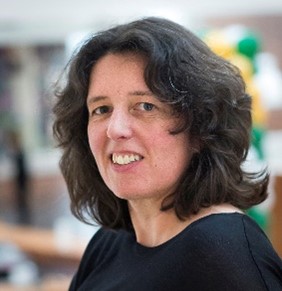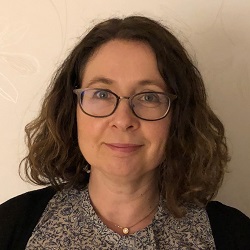CONTENTS
本年は例年開催している”QCワークショップ”(*1)のテーマをさらに拡大し、バイオ医薬品の品質評価の枠にとらわれず、幅広いテーマを取り扱っていきたいという思いを込めてCytiva Analytical Workshopと名称を変更しました。
今回は医薬品研究開発のステージ、医薬品モダリティ、分析技術の範囲(*2)を広くしてスピーカーの方々をお呼びしております(*3)。新しい治療法(医薬品モダリティ)や新しい分析の方法論の様に現在変化が激しく、正解が決まっていない分野において、バイオ医薬品分析に携わる皆様への共通理解やヒントになるような場としてご参加いただければ幸いです。
また、今回はオンラインでの懇親会・ポスター発表の場も設定予定でございます(*4)。ぜひお気軽にご参加ください。
- *1:2020年の「QCワークショップ」の内容はこちらからご覧いただけます。
- *2:ほとんどのご講演でBiacore™の測定技術が含まれますが、そのほか弊社技術ではÄKTA™、HCP測定技術、また弊社以外の測定技術も含みます。
- *3:ほとんどのご講演が英語ビデオになりますが、簡単な日本語解説とご講演者へのご質問のお取次ぎをご用意しております。
- *4:SpatialChatを用いた懇親会・ポスターを予定しています。ご講演者の方、ご参加者の方のご参加をお待ち申し上げます。
EVENT OUTLINE
2021年10月8日(金)
9:30~18:00
オンラインにて開催予定
※SafariやFireFox™でご覧いただいている場合、フォームが表示されないケースがございます。その際はChrome等のブラウザでお試しください。
PROGRAM
9:30 - 9:40
開会あいさつ、諸注意
9:40 - 10:30
【基調講演】AAVの品質評価戦略
In-vivo GT Control Strategy: Need for Adequate (Pre-) cQAs and for cognate analytical technologies of AAV Based GT Products
Roland Pach Global Expert Cell and Gene Therapy Analytics, F.Hoffmann-La Roche Ltd
MORE INFO
10:35 - 11:15
【グローバルトレンド&トピック】Biacore™ & ÄKTA™
Current PAT trends, Regulatory Update and Novel Quality Control Assays
Fredrik Sundberg Global Director Strategic Technology Partnerships, Cytiva
MORE INFO
11:20 - 12:00
【ケーススタディ】Biacore™ & ÄKTA™
Experimental evidence for enhanced receptor binding by rapidly spreading SARS-CoV-2 variants.
Joyce H. G. Lebbink Associate Professor at Dept. of Molecular Genetics, Erasmus University Medical Center
MORE INFO
13:00 - 13:40
【ケーススタディ】Biacore™
Calibration-Free Concentration Analysis for Quantification of Anti-Drug Specific Antibodies in Positive Control Antibodies and in Clinical Samples
Christina Aniol-Nielsen, Henrik Toft-Hansen Clinical Immunogenicity Analysis, Novo Nordisk
MORE INFO
13:45 - 14:25
【グローバルトレンド&トピック】HCP
Challenges of host cell protein analysis, from technical to logistics
Joe Hirano Program manager, Imaging and Western Blotting, Cytiva
MORE INFO
14:30 - 15:10
【ケーススタディ】Biacore™
Innovative antibody therapeutics and SPR
Chifumi Teramoto (Seida) Chugai Pharmaceutical Co., Ltd.Discovery Biologics Dept. Protein Analysis Group,Research Div.
MORE INFO
15:15 - 15:55
【ケーススタディ】AAVなど分析
Analytics in viral vector bioprocessing
Åsa Hagner McWhirter Senior Scientist, Cytiva
MORE INFO
16:00 - 16:40
【ケーススタディ】Biacore™
How to identify aggregate selective antibodies using SPR
Patrik Nygren Senior Scientist, BioArctic
MORE INFO
16:45 - 18:15
オンライン懇親会、ポスター発表(各ご講演間にご参加・ご利用方法スライド放映)
オンデマンド視聴登録はこちらから

Roland Pach
Global Expert Cell and Gene Therapy Analytics
F.Hoffmann-La Roche Ltd
Presentation Title
In-vivo GT Control Strategy: Need for Adequate (Pre-) cQAs and for cognate analytical technologies of AAV Based GT Products
Key Takeaways
- Control strategy concepts & cQAs in Biologics
- On the path to a control strategy in the field of the in-vivo GT
- High need for analytical innovation by improving of and establishing of new technologies – a snapshot of the landscape
Biography
Dr. Roland Pach holds a PhD in molecular parasitology at the University Fribourg analyzing the intracellular trafficking of transgenic RNA in human pathogens.
Prior Roche, he was leading the Analytical Development department at Berna Biotech (former Swiss Vaccine and Serum Institute) and the QC department of Bio-Process Development at Merck Serono.
Roland is the global CMC Analytical Technical Lead in the cancer vaccines and cell- & gene therapy (CGT) area of Roche more than 10 years. In his assigned area, he represents Roche in external development projects, industrial consortiums like CGT BioPhorum and numerous due diligences of in-licensing candidates or companies in the CGT fields.
In his second role at Roche as global technical development leader, he successfully led new formats like immunotoxins from pre-clinics into entry to human (EiH).

Fredrik Sundberg
Global Director
Strategic Technologies, Cytiva
Presentation Title
Current PAT trends, Regulatory Update and Novel Quality Control Assays
Abstract
Establishing well-characterized biological products is getting increasingly challenging with complex modalities (ADCs, bi-specifics, viral vectors, etc.) and new expectations on improved bioprocess productivity. This presentation provides an overview of the latest analytics trends, our recent PAT sensor projects for accelerating antibody quantification and recent global product QC/Validation regulatory developments.
Biography
As Global Director Strategic Technologies at Cytiva, Fredrik is responsible for working with the biopharmaceutical industry to improve current workflows with innovative analytical solutions. He also advises on R&D projects and business development activities. Fredrik is author of several publications on drug discovery and biosimilar strategies. He is also member of an EMEA Pharmaceutical Industry Expert Panel, and he regularly lectures and discusses regulatory issues with government officials and health authorities.

Joyce H. G. Lebbink
Associate Professor at Dept. of Molecular Genetics
Erasmus University Medical Center
Presentation Title
Experimental evidence for enhanced receptor binding by rapidly spreading SARS-CoV-2 variants.
Abstract
Charlie Laffeber1, Kelly de Koning1, Roland Kanaar1 and Joyce H. G. Lebbink1,2
- 1Department of Molecular Genetics, Oncode Institute, Erasmus MC Cancer Institute, Erasmus University Medical Center, Rotterdam, the Netherlands
- 2Department of Radiation Oncology, Erasmus University Medical Center, Rotterdam, the Netherlands
Rapidly spreading new variants of SARS-CoV-2 carry multiple mutations in the viral spike protein which attaches to the angiotensin converting enzyme 2 (ACE2) receptor on host cells. We have purified to homogeneity the hACE2 ectodomain and the spike receptor binding domain (RBD) containing different combinations of mutations as found in the SARS-CoV-2 α, β and δ variants. We analyzed kinetics and affinity of complex formation between hACE2 and RBD using Biacore™ T100. Sample optimization using size-exclusion chromatography allowed binding sensorgrams to be accurately fit by a 1:1 binding model. Individual mutations were found to decrease or increase binding affinity to different extends. The effect of combinations of mutations was found to be additive. The largest effect on complex stability was found for the N501Y mutation that is present in the α and β variants and increases the affinity 7-fold. Implications of these findings for viral transmission will be discussed.
Biography
Joyce Lebbink obtained her PhD in Biochemistry at Wageningen University in the Netherlands in 1999. After two Postdocs in Structural Biology at the Karolinska Institute in Stockholm, Sweden, and the Dutch Cancer Institute, she moved to the Erasmus Medical Center in Rotterdam in 2007 to set up her own research group. Her research interests include the molecular mechanisms of DNA repair and biomolecular interactions in health and disease. She has scientifically coordinated several large EU consortia and received with her colleagues the Ammodo prize for groundbreaking research from the Royal Dutch Academy of Arts and Sciences in 2020.
Christina Aniol-Nielsen, Henrik Toft-Hansen
Clinical Immunogenicity Analysis
Novo Nordisk
Presentation Title
Calibration-Free Concentration Analysis for Quantification of Anti-Drug Specific Antibodies in Positive Control Antibodies and in Clinical Samples
Abstract
Highly sensitive assays for anti–drug antibodies (ADAs) are both a regulatory requirement and requisite for evaluation of the effects of immunogenicity on clinical efficacy and safety. Determination of ADA assay sensitivity depends on positive control antibodies to represent naturally occurring or treatment–induced ADA responses. An accurate determination of the proportion of drug–specific antibodies in these polyclonal positive control batches is critical for correct evaluation of assay sensitivity.
Target purification of positive control antibodies is commonly applied but infers the risk to lose a proportion of the antibodies. This may lead to an incorrect estimate of the ADA assay sensitivity, especially if high–affinity antibodies are lost that may represent natural ADAs with clinical implication.
The Surface Plasmon Resonance platform on the Biacore™ systems offers methods for real–time analysis of biomolecular interactions without introducing any modifications to the analysed material. Calibration–free concentration analysis (CFCA) is such an application for determination of the proportion of drug–specific antibodies, which allows direct determination of active antibody concentrations in a flow–based system.
We present a novel CFCA method for ADA quantification developed and validated using polyclonal positive control antibodies against endogenous human insulin, insulin degludec (Tresiba®) and turoctocog alfa (NovoEight®).
We find that CFCA precisely and accurately measures concentrations of drug–specific IgG antibodies with a precision of ±10% and 90%–112% recovery of expected values of monoclonal positive control antibodies. Additionally, we achieved a more accurate measure of the sensitivity of a cell–based bioassay for in vitro neutralising ADAs using the specific concentration determined with CFCA. Moreover, we effectively quantified anti–insulin antibodies in high–titre clinical samples from individuals with diabetes mellitus. This application extends the relevance of the CFCA technology to analysis of immunogenicity for accurate quantification of ADAs in also clinical samples.

Joe Hirano
Program manager, Imaging and Western Blotting, Cytiva
Presentation Title
Challenges of host cell protein analysis, from technical to logistics
Abstract
For the drug safety and the regulatory requirements, Host Cell Protein (HCP) must be removed as much as possible, and the level of HCP must be monitored and controlled during the process development and later in the production to make sure the desired product quality. The most widely used method to monitor HCP levels in biologics is Enzyme-Linked ImmunoSorbent Assay (ELISA). The HCP ELISA has unique requirements and we have been facing challenges for this analysis in a variety of aspects. In this presentation, we overview these challenges and discuss solutions in 1) technical challenges for HCP ELISA and its coverage analysis, 2) orthogonal approach to HCP ELISA, 3) security of supply for critical reagents and 4) in-house and out-sourcing management.
With these, we would like to share our recent understandings to mitigate the HCP risk and maximize the drug development efficiency.
Biography
Joe Hirano is a program manager at Cytiva based in Uppsala, Sweden, where he coordinates products and their applications between R&D and external collaborators to support customers. Since joining the company in 2000, He has been working with genomics, protein research, and biomanufacturing products, including electrophoresis, Western blot, imaging, and upstream and downstream bioprocess products. His current focus is on the analysis of host cell protein and other impurities for biotherapeutics development and production.
Chifumi Teramoto (Seida)
Chugai Pharmaceutical Co., Ltd.
Discovery Biologics Dept. Protein Analysis Group,
Research Div.
Presentation Title
Innovative antibody therapeutics and SPR
Abstract
Evaluation of the binding properties of antibody drugs to antigens and Fc receptors are mandatory for development of biotherapeutics from research to CMC purposes.
Antibody engineering technologies have been developed in each company to improve the quality of life of patients and solve the unmet medical needs. For example, prolonging pharmacokinetics enables the administration of small dose with a long dosing interval.
Nowadays, SPR is a globally common technology for characterizing the mode of action(MoA) of such molecules.
I will introduce our proprietary antibody engineering technologies and show the examples of how to design MoA reflected SPR assay.
Biography
- 2012年中外製薬株式会社製薬本部CMC開発部分析技術 入社
- 2017年中外製薬工業株式会社品質研究部
CMC開発における、Bioassay申請戦略立案や試験法構築、技術移転、自社開発品の治験薬/商用グローバル承認申請書作成及びプロジェクト推進を担当。 - 2021年中外製薬株式会社 研究本部バイオ医薬研究部タンパク質分析グループ所属
創薬研究における分析評価及び評価系構築に従事。

Åsa Hagner McWhirter
Principal Scientist
Bioprocess applications R&D, Cytiva
Presentation Title
Analytics in viral vector bioprocessing
Biography
Åsa holds a PhD in Medical Biochemistry from Uppsala University in 1999. Åsa has been with the company since 2003, working as a Downstream SME, with a broad and deep understanding biopharmaceutical application challenges in the area of viral vectors and vaccines as well as general protein purification and analysis.

Patrik Nygren
Senior Scientist
BioArctic
Presentation Title
How to identify aggregate selective antibodies using SPR
Abstract
Several neurodegenerative diseases, including Alzheimer's and Parkinson's disease, have in common that specific proteins aggregate into soluble toxic species and eventually forms insoluble plaques/Lewy bodies in the brain. Antibodies targeting specifically these soluble aggregates are currently being developed by BioArctic and others. This session will focus on how SPR is utilized at BioArctic to identify antibodies that selectively bind soluble aggregated forms of otherwise benign proteins.
Biography
Patrik Nygren is a Senior Scientist at BioArctic AB, Stockholm, Sweden, where he has worked since 2017. He got his BSc in organic chemistry 2004 from Linköping University and a PhD in Molecular Physics in 2008 from Linköping University as well. Between 2009 and 2014 he was a Postdoctoral fellow at the Department of Hematology, School of Medicine and the Department of Biochemistry, School of Dental Medicine at university of Pennsylvania. He then worked as a Scientist at InZymes AB in Linköping while as managing the ProLink Core Facility at Linköping University.